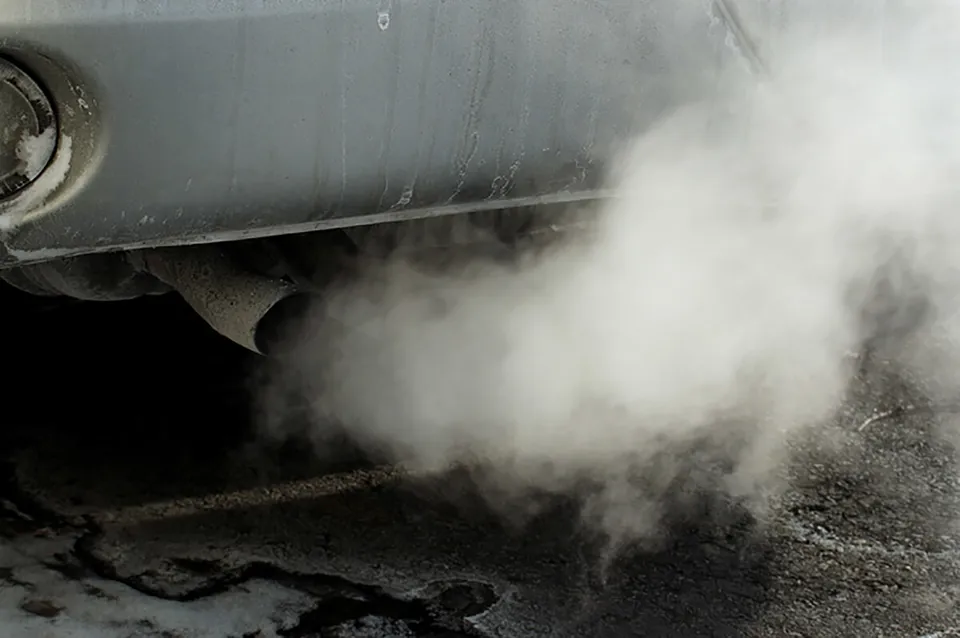The 3% diesel surcharge on company car tax should be increased and extended beyond 2021, a study into air quality has suggested.
The report, by the Policy Exchange think-tank and King’s College London, also recommends cutting or removing tax breaks for diesel vehicles under the capital allowances scheme and increasing vehicle excise duty (VED) for new diesel cars.
Richard Howard, head of environment and energy at Policy Exchange, said: “If we are to clean up air pollution, then Government needs to recognise that diesel is the primary cause of the problem, and to promote a shift to alternatives.”
The report – ‘Up in the Air: How to solve London’s air quality crisis: Part 2’ – states that the shift from petrol to diesel vehicles over the past 15 years has been “disastrous in terms of its impact on air quality and health”.
Diesels have been promoted and incentivised by the Government since the late 1990s because they produce lower CO2 emissions than petrol vehicles. This resulted in a dramatic shift towards diesels, from 18% of new car sales in 2001, to more than 50% from 2011 onwards. Diesels currently represent 36% of the total car fleet across the UK and just under half (49%) of total car mileage in London, with businesses running the lion’s share.
However, the report argues that the financial incentives that promoted the uptake of diesels now need to be “removed and reversed”.
Based on current policies, by 2025 diesel cars will account for 50% of all nitrogen dioxide (NOx) emissions from road transport in Greater London, and about a quarter (26%) in central London.
Air quality is not a London-specific problem. Currently, 38 out of 43 geographical zones in the UK are failing European Union air quality standards due to high levels of NOx. London, Birmingham, Leeds, Nottingham, Derby and Southampton may have to introduce charges for the most polluting vehicles or ban them altogether.
However, Howard is against banning diesels from city centres or increasing fuel duty. Instead, he said: “The Government should look to increase taxes on new diesel cars.”
The report states that moving away from diesels to a mix of petrol, hybrid, electric and LPG vehicles would significantly reduce pollutants, while having no adverse impact on CO2 emissions.
To persuade fleets and drivers to make the switch, it recommends measures including linking VED to the health and environmental impact of the vehicle; a so-called ‘damage cost’.
Using Defra guidelines, the damage cost of an average Euro 6 diesel car is about £800 higher than an average Euro 6 petrol car over its lifetime, based on real-world NOx emissions and other pollutants such as particulate matter (PM).
Given the dearth of current alternatives for vans, the report says the additional diesel charge should not apply to commercial vehicles at this stage.
Company car tax already features a diesel surcharge. The Government’s current position is that the 3% diesel supplement will be removed from 2021. However, given that diesels are likely to continue to have higher NOx emissions than petrol cars, the report says the Government should consider maintaining it “beyond this date”.
It was thought Chancellor George Osborne may have been tempted to shift the focus of company car tax from CO2 to NOx, but he announced in last month’s Budget that it would continue to be based on CO2 emissions.
There was however, nothing further on the 3% diesel differential, which was due to be scrapped this month until the Chancellor decided in the autumn statement to delay its removal for a further five years.
The Policy Exchange report is damning in its assessment of the 3% surcharge, saying it is “insufficient to significantly influence purchasing behaviour”. Instead, it recommends increasing the surcharge in order to “better reflect the additional damage associated with diesels in terms of local air pollution”.
Other measures in the report include: a diesel scrappage scheme; stricter emissions standards for the Ultra Low Emission Zone (ULEZ) in London from 2020; improving emissions from buses and taxis; and promoting car clubs.
Diesel has been increasingly criticised by environmental groups in recent years, resulting in the Society of Motor Manufacturers and Traders (SMMT) launching a nationwide campaign last year to challenge what it called the ‘demonisation’ of diesel. Mike Hawes, SMMT chief executive, said: “Today’s diesel engines are the cleanest ever. We need to avoid penalising one vehicle technology over another.”
To read the full report, click here.





















Phil Bevan - 18/04/2016 11:36
Just another STEALTH TAX